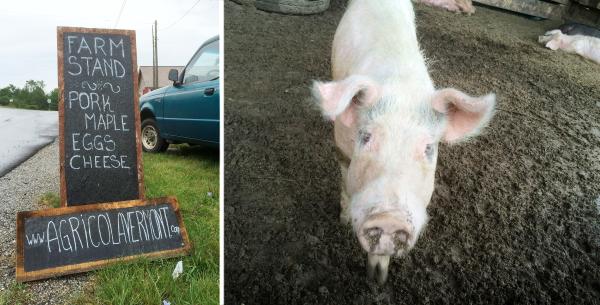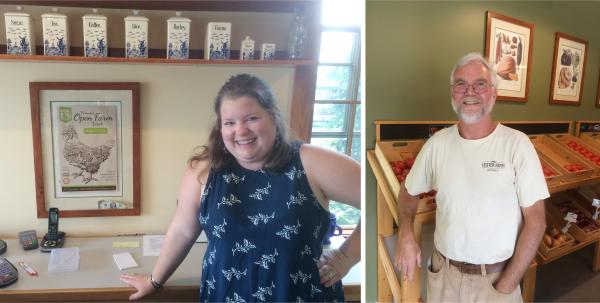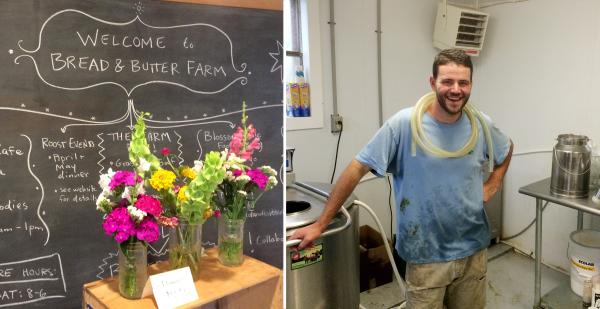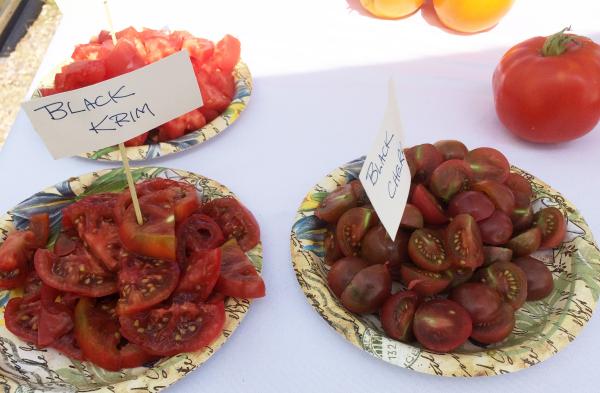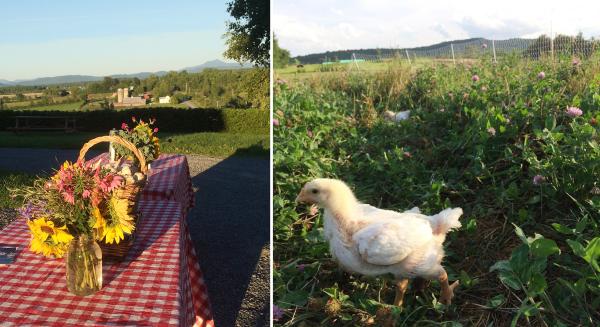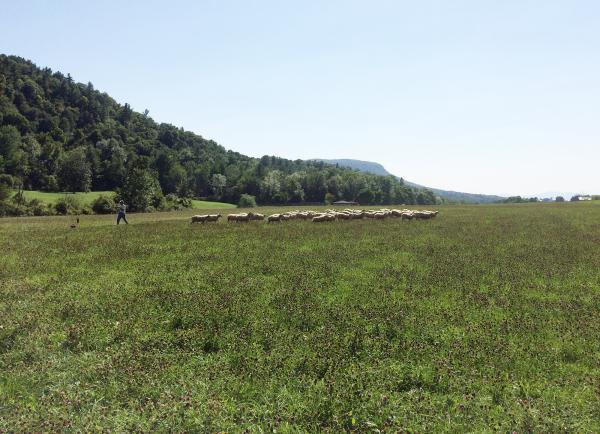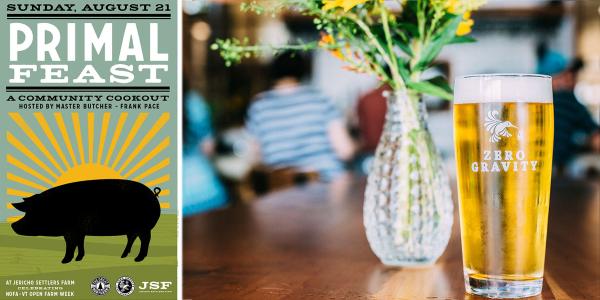Open Farm Week Sights and Sounds
Every week is Open Farm Week in Vermont, right? For some farms (like us), yes!
For many other farms, though, where visitors aren’t part of the everyday, Open Farm Week is a perfect chance to tell their stories and offer experiences to customers new and old. This August, nearly 100 farms participated in the second annual Open Farm Week, and visitors chose from over 300 events.
I was one of the event organizers (in my role with the Farm-Based Education Network), so my goal for the week was to get out to as many farms as possible to take in the sights and sounds (and tastes!).
I started every day on DigInVT.com, challenged by the many choices of places to visit.
Here’s how the week shook out.
Tuesday:
I drove south to one of my favorite farms in Addison County: Agricola Farm. Alessandra Rellini farms with her heart and soul and raises pork on a no-corn, no-soy diet that contributes to very high-quality fat (and flavor!) in her animals.
Later I stepped onto Lester Farm on Route 7 in New Haven. Addie at the farm store and their rambunctious pup greeted me. Their store holds about 100 products that were either grown on the farm, locally sourced, or brought in as seasonal treats. Co-owner Sam was offering wagon rides and was pleased to report that the corn maze would be opening soon.
Wednesday:
A quick visit to Bread and Butter Farm left me inspired by the way their farm stand has grown over this season. If you haven’t stopped in recently, please do! Bread and Butter operates multiple enterprises out of their hub, including a cafe that serves delicious coffee, and perhaps my favorite, Henry’s Dairy, which is run by Shelburne Farms’ alum Henry Cammack!
(I was grateful that Bread and Butter was sharing Open Farm Week postcards at their farm stand to help spread the word).
Thursday
What a gem of a day! I got to enjoy my favorite food: the tomato! Julie Rubaud of Red Wagon Plants in Hinesburg hosted a Tomato Tasting as part of her Summer Salad Series. With The Family Cow’s heifers grazing in the pasture next to us, and grilled O’Bread on our plates, a small group of tomato enthusiasts discussed seed varieties and purveyors, indoor and outdoor tomatoes, sweetness, tartness, drought, and the stories of some fascinating varieties like Clementine, Black Krim, Valencia, and Paul Robeson.
Friday
I was the host! I hosted an event at Philo Ridge Farm, where I live in Charlotte. The event coincided with our chicken harvest, so customers stopped by to pick up chickens for their freezers and enjoy smoked chicken tacos from our outdoor oven. With 300 pasture-raised chickens safely in our freezers, and another 300 skittering around the brooders, visitors got to experience the full cycle of our chicken production.
Saturday
I checked out Treleven Farm, located just north of Snake Mountain in Vergennes, an area that rivals our own gorgeous slice of Shelburne. Cheryl and Don Mitchell are community-minded farmers who raise sheep; they hosted a walk in their pastures where sheep have grazed for more than 30 years.
Sunday
Frank Pace was cooking an Open Farm Week barbecue at Jericho Settlers Farm. Drizzling rain didn’t stop a large crowd from coming out. Kids danced to live music, Zero Gravity poured beer, and Frank and Marnie Pace filled the bellies of all ticket holders with amazing food straight from their farm. The art gallery in their barn, which was showcasing turned wooden bowls and paintings was an added bonus.
All of my farm visits left me with more respect than ever for the farmers who opened their doors during Open Farm Week and for those who do it year round. Farming, as we all know, can be tough work. When farmers turn educator and host and invite the public into their barns, fields, and forests, they are adding another complex dimension to their operations and lives. So why do it? Most simply, they know it's critical that people see how food and fiber are produced, to build an awareness of and appreciation for the working landscape. We know that people will protect the things they love, and through experiential, place-based learning we can build confident kids and conscientious communities who understand the value of land and the people who farm it.

